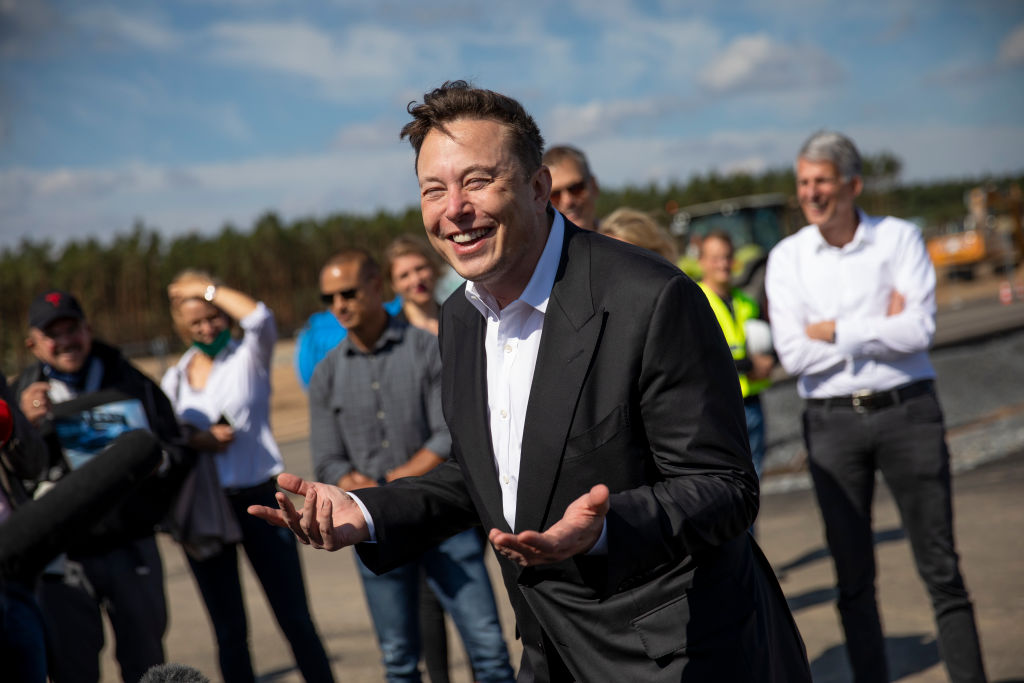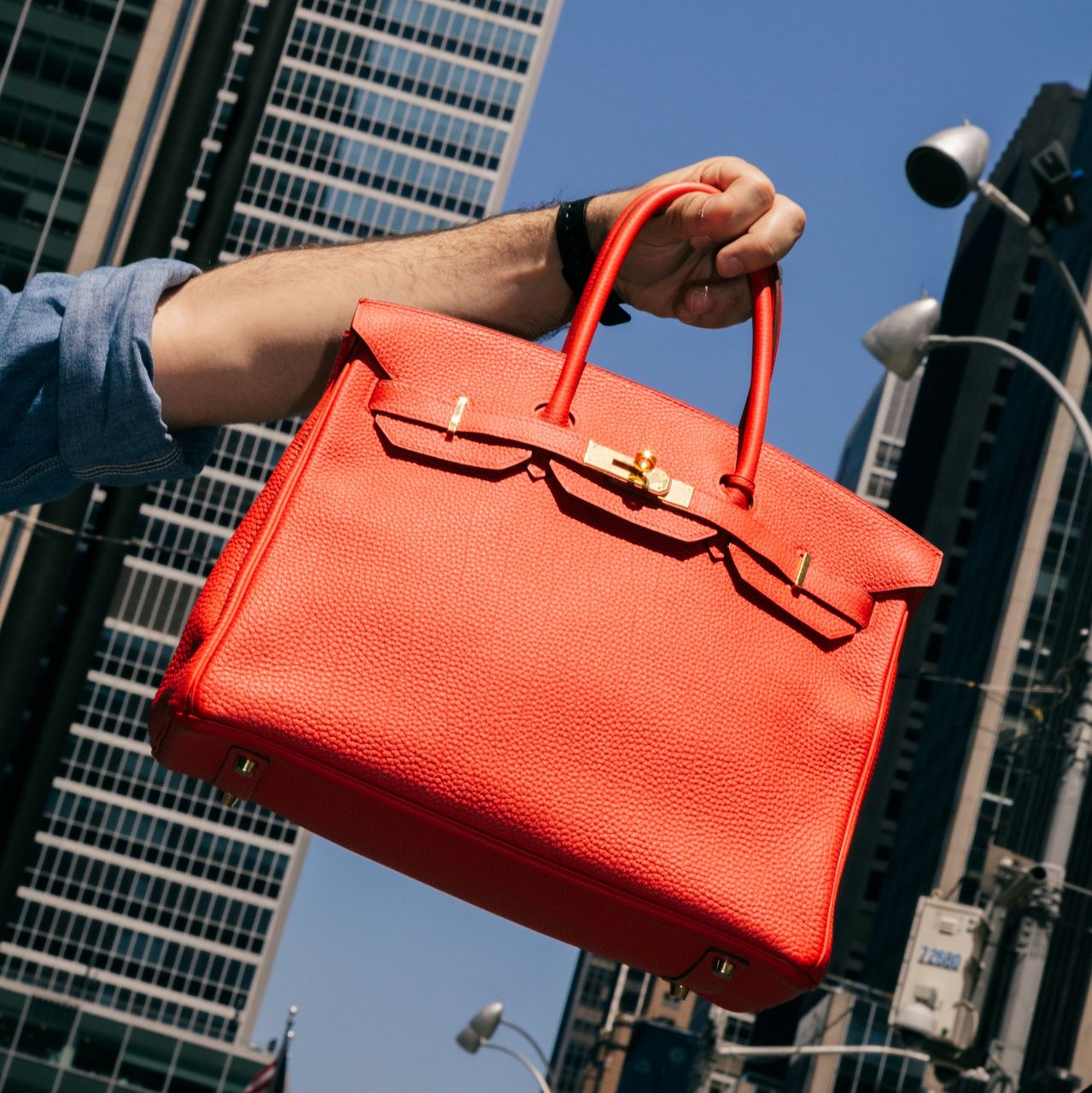Tesla Buys $1.5 Billion In Bitcoin
Cryptocurrency’s price soars after electric-vehicle maker says it soon expects to accept customer payments in bitcoin.
Tesla Inc. said Monday that it bought $1.5 billion in bitcoin, a disclosure that follows Chief Executive Elon Musk’s promotion of the cryptocurrency and other digital-currency alternatives on Twitter.
The electric-vehicle company also said it expects to start accepting bitcoin as payment for its products soon. Bitcoin prices jumped more than 10% after the announcement, according to cryptocurrency research and news site CoinDesk.
Tesla disclosed its bitcoin purchase in its latest annual report, saying the move aims to “diversify and maximize returns on our cash that is not required to maintain adequate operating liquidity.” Tesla said a board committee had approved changes to company rules on investments, adding that it can also invest cash in gold bullion and gold exchange-traded funds among other assets.
The bitcoin purchase, likely among the largest by a public company, comes after a rally in 2020 when the price more than quadrupled. Tesla is joining a handful of other companies that have disclosed bitcoin holdings. Software developer MicroStrategy Inc. acquired about $425 million worth of bitcoin last summer, and its CEO, Michael Saylor, has become an outspoken proponent.
Companies holding bitcoin in their treasuries face an accounting risk: Because bitcoin and other digital assets are considered “indefinite-lived intangible assets,” rather than currencies, any decrease in their value below what the company paid for them—even a temporary one—can force a company to write down the value, taking an impairment charge. MicroStrategy posted a net loss in the third quarter of 2020 because the price of bitcoin dropped temporarily in September.
Tesla said it would analyze its holdings in the cryptocurrency each quarter to see whether impairments are warranted based on bitcoin prices. “If we hold digital assets and their values decrease relative to our purchase prices, our financial condition may be harmed,” the company said.
Sharp changes in the digital currency’s valuation might be why companies have acquired millions, rather than billions, of dollars’ worth of the cryptocurrency, said Michel Rauchs, founder of Luxembourg-based digital-assets consulting firm Paradigma Sarl: “It is definitely greater risk but greater reward there.”
Bitcoin recently traded Monday at $43,602.68, according to CoinDesk. Its price averaged $34,730.12 in January and is currently more than eight times higher than bitcoin’s 2020 low of a little under $5,000.
Mr. Musk has shown growing interest in bitcoin in recent years, after tweeting in 2018 that the only cryptocurrency he owned was one-quarter of a bitcoin a friend had given him—which today would be worth more than $10,000. Around Jan. 29 the Tesla chief changed his Twitter biography to “#bitcoin,” which sent prices for it higher, before removing that reference.
“I think bitcoin is really on the verge of getting broad acceptance by sort of the conventional finance people,” he said last week on the social-networking app Clubhouse. Mr. Musk said he needed to be cautious with his public statements about cryptocurrencies because “some of these things can really move the market.”
Tesla didn’t respond to a request for comment. The company said in its report that it updated its investment policy in January but didn’t disclose the exact timing of either its board decision or its bitcoin purchase.
“He’s already telegraphed it to the market,” said Meltem Demirors, chief strategy officer at London-based asset management firm CoinShares, referring to Mr. Musk’s mentioning bitcoin in his Twitter biography. “One of the world’s largest corporations doing this—I think it opens the floodgates.”
Recently, Mr. Musk’s tweets about dogecoin, a cryptocurrency started as a joke in 2013, have helped drive up that virtual currency’s price.
Tesla has struggled to maintain cash while ramping up vehicle production, but its shares soared some 480% in the year ended Friday as investors piled into electric-vehicle makers and the company reported a string of quarterly profits. Tesla took advantage of that surge by selling billions of dollars in new stock, shoring up its cash position. The company’s cash holdings totalled around $19.4 billion at the end of last year, up from around $6.3 billion at the end of 2019.
Mr. Musk’s tweets have drawn regulatory scrutiny, including from the Securities and Exchange Commission over a 2018 post in which the CEO said he had secured funding to take Tesla private. Mr. Musk and the SEC later settled in a deal requiring the company to sign off on any written statements he made that could be deemed material. He has since mocked the regulator on Twitter.
The SEC is unlikely to challenge Mr. Musk over his bitcoin tweets, said John Coffee Jr., a Columbia University law professor who specializes in securities law, especially after a federal judge rebuked the commission when it sought to hold the CEO in contempt in 2019. Tesla didn’t respond to a request for comment about whether Mr. Musk had sought approval for his bitcoin commentary.
Mr. Musk’s online remarks can move markets. After touting online shopping site Etsy Inc. in January, the stock rose more than 8% on the open. Shares in CD Projekt SA, the maker of the troubled Cyberpunk 2077 game, rose more than 15% after Mr. Musk praised the game. Both stocks retreated later. Last year, Mr. Musk tweeted that he thought Tesla’s share price was too high. The market agreed, and the stock fell before recovering.
An affinity for bitcoin seems a natural fit for Mr. Musk, who has bristled at government constraints. Last year he battled local authorities in California that ordered his lone U.S. car plant closed as part of broader measures to curb the pandemic. Mr. Musk reopened the facility after several weeks, daring authorities to arrest him. They didn’t.
Part of bitcoin’s appeal for some holders is that it isn’t circulated or controlled by a government or nation. Unlike opening up a bank account to store dollars, euros or yen, starting a bitcoin account doesn’t require providing identifying information. Bitcoin is effectively anonymous, and law enforcement can’t freeze a bitcoin account as they could a bank account.
Payments company Square Inc., which shares bitcoin advocate Jack Dorsey as its CEO with Twitter Inc., acquired about $50 million worth for its corporate treasury in October. Massachusetts Mutual Life Insurance Co. acquired $100 million worth in December to hold in its general investment account.
Companies might have grown more optimistic about bitcoin after the March 2020 selloff, when it recovered faster than the broader stock market, said Joel Kruger, a currency strategist at LMAX Group.
The added wrinkle with Tesla is the plan to accept bitcoin from customers. Few companies now accept bitcoin directly as payment; Overstock.com Inc. is among the few that do. Some large companies experimented with bitcoin payments in 2014 and 2015, like Dell Technologies Inc. and Expedia Group Inc., but most later dropped it for lack of use.
While Tesla’s move would be high profile, a more substantial development is expected later this year, when PayPal Holdings Inc. plans to allow its customers to use their bitcoin holdings for payments.
Mr. Musk’s ties to the financial-services industry date to the 1990s, when he invested most of the $22 million he earned from the sale of an internet business into a new startup, X.com, that became PayPal. EBay Inc. bought PayPal for $1.4 billion in 2002.
As the largest shareholder, a 31-year-old Mr. Musk collected more than $100 million. He used the money to start Tesla and Space Exploration Technologies Corp., the rocket company he also runs, as well as solar-cell company SolarCity, now part of Tesla.
 Copyright 2020, Dow Jones & Company, Inc. All Rights Reserved Worldwide. LEARN MORE
Copyright 2020, Dow Jones & Company, Inc. All Rights Reserved Worldwide. LEARN MORE
This stylish family home combines a classic palette and finishes with a flexible floorplan
Just 55 minutes from Sydney, make this your creative getaway located in the majestic Hawkesbury region.
Continued stagflation and cost of living pressures are causing couples to think twice about starting a family, new data has revealed, with long term impacts expected
Australia is in the midst of a ‘baby recession’ with preliminary estimates showing the number of births in 2023 fell by more than four percent to the lowest level since 2006, according to KPMG. The consultancy firm says this reflects the impact of cost-of-living pressures on the feasibility of younger Australians starting a family.
KPMG estimates that 289,100 babies were born in 2023. This compares to 300,684 babies in 2022 and 309,996 in 2021, according to the Australian Bureau of Statistics (ABS). KPMG urban economist Terry Rawnsley said weak economic growth often leads to a reduced number of births. In 2023, ABS data shows gross domestic product (GDP) fell to 1.5 percent. Despite the population growing by 2.5 percent in 2023, GDP on a per capita basis went into negative territory, down one percent over the 12 months.
“Birth rates provide insight into long-term population growth as well as the current confidence of Australian families,” said Mr Rawnsley. “We haven’t seen such a sharp drop in births in Australia since the period of economic stagflation in the 1970s, which coincided with the initial widespread adoption of the contraceptive pill.”
Mr Rawnsley said many Australian couples delayed starting a family while the pandemic played out in 2020. The number of births fell from 305,832 in 2019 to 294,369 in 2020. Then in 2021, strong employment and vast amounts of stimulus money, along with high household savings due to lockdowns, gave couples better financial means to have a baby. This led to a rebound in births.
However, the re-opening of the global economy in 2022 led to soaring inflation. By the start of 2023, the Australian consumer price index (CPI) had risen to its highest level since 1990 at 7.8 percent per annum. By that stage, the Reserve Bank had already commenced an aggressive rate-hiking strategy to fight inflation and had raised the cash rate every month between May and December 2022.
Five more rate hikes during 2023 put further pressure on couples with mortgages and put the brakes on family formation. “This combination of the pandemic and rapid economic changes explains the spike and subsequent sharp decline in birth rates we have observed over the past four years,” Mr Rawnsley said.
The impact of high costs of living on couples’ decision to have a baby is highlighted in births data for the capital cities. KPMG estimates there were 60,860 births in Sydney in 2023, down 8.6 percent from 2019. There were 56,270 births in Melbourne, down 7.3 percent. In Perth, there were 25,020 births, down 6 percent, while in Brisbane there were 30,250 births, down 4.3 percent. Canberra was the only capital city where there was no fall in the number of births in 2023 compared to 2019.
“CPI growth in Canberra has been slightly subdued compared to that in other major cities, and the economic outlook has remained strong,” Mr Rawnsley said. “This means families have not been hurting as much as those in other capital cities, and in turn, we’ve seen a stabilisation of births in the ACT.”
This stylish family home combines a classic palette and finishes with a flexible floorplan
Just 55 minutes from Sydney, make this your creative getaway located in the majestic Hawkesbury region.






















